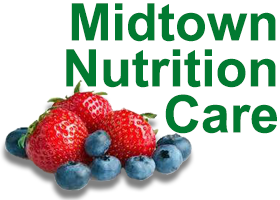 What Are Omega-3 Fatty Acids?
What Are Omega-3 Fatty Acids?
Omega-3 fatty acids are a type of polyunsaturated fat. Polyunsaturated fats, along with monounsaturated fats, are considered healthy for us. Omega-3 fatty acids are also considered essential fatty acids, which means our bodies cannot manufacture them, hence we must consume them in our diet. The three most popular nutritionally important omega-3 fatty acids are EPA, DHA and ALA. EPA and DHA are primarily found in coldwater fish, while ALA is found primarily in plant-based foods.
What Are the Health Benefits?
Eating omega-3 fatty acids may reduce the risk of heart disease. They can help the heart by working to reduce inflammation, lower the amount of circulating lipids, inhibit blood clots and lower blood pressure. Omega-3’s may help reduce joint pain, due to their anti-inflammatory benefits.
Although there is no proven research to date, studies suggest that omega-3 fatty acids benefit a variety of other health issues. These include depression, fetal brain and eye development, developmental disorders (ADD/ADHD), psychiatric disorders, cognitive aging and boosting the immune system.
Not all forms of Omega-3’s provide equal health benefits. EPA and DHA are linked to most of the health boosting effects. ALA must be converted to EPA and DHA in our bodies. Research has shown that women tend to have a better ALA conversion efficiency then men.
What are the Best Food Sources of Omega-3’s?
Coldwater fish or the so-called fatty fish tend to be the best sources.
Below is a listing of the EPA and DHA concentration of 6 oz portions of common fish, unless otherwise noted.
- 3650 mg — Atlantic Salmon, farmed
- 3130 –- Atlantic Salmon, wild
- 1960 — Rainbow Trout, farmed
- 1200 –- Canned Salmon, 3 oz
- 1190 –- Sardines
- 850 — Flounder
- 470 — Yellowfin Tuna
- 400 — Haddock
- 330 — Canned, chunk white tuna, 3 oz
- 270 — Shrimp, 3 oz
If you are allergic to fish or dislike fish you can still get omega-3’s in the form of ALA by consuming canola oil, flaxseeds, hempseeds, chia seeds, walnuts, pecans and almonds.
In addition, some foods are fortified with omega-3’s. One example of this is the Smart Balance line of products, which include buttery spreads, peanut butter, oils, milks, mayo and popcorn.
Should You Supplement and at What Dosage?
If you are someone who consumes 4 ounces of fatty fish twice a week, you likely do not need an omega-3 supplement.
The American Heart Association recommends EPA and DHA for their cardiovascular benefits. Individuals who have no history of heart disease should consume coldwater fish or fish oil twice per week. Individuals with a diagnosis of coronary heart disease should consume 1g (1000mg) of EPA and DHA per day. Those who are trying to lower their triglycerides should consume 2-4g of EPA and DHA per day in the form of a supplement.
Vegetarians can supplement with flax seed oil or algae oil.
High doses of fish oil may have negative side effects. Therefore you should consult your physician or nutritionist before you decide to supplement with high doses of fish oil.
